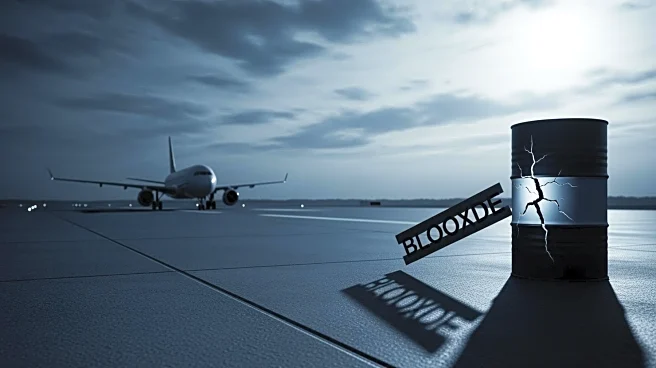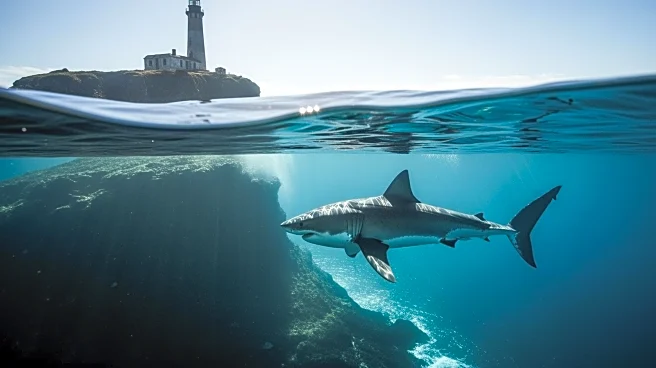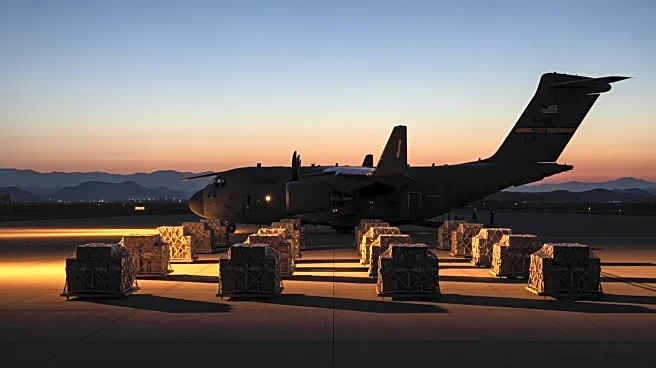What's Happening?
America Ferrera stars in the new film 'The Lost Bus,' which dramatizes the true story of a school bus driver, Kevin McKay, who rescued 22 children during the 2018 Camp Fire, the deadliest wildfire in California's history. Ferrera plays Mary Ludwig, a second-grade teacher who was on the bus during the harrowing escape. The film, directed by Paul Greengrass, features Matthew McConaughey as McKay and explores the intense and dangerous journey through the fire. Ferrera shared her experiences portraying Ludwig, emphasizing the real-life heroism and resilience displayed during the disaster. The film aims to honor the acts of bravery and the human spirit in the face of natural calamities.
Why It's Important?
The film 'The Lost Bus' sheds light on the increasing frequency and unpredictability of wildfires in California, a pressing issue exacerbated by climate change. By dramatizing real events, the film highlights the challenges faced by communities and the heroic efforts of individuals during such crises. It serves as a reminder of the growing threat of wildfires and the need for effective emergency response strategies. The portrayal of real-life heroes like Kevin McKay and Mary Ludwig underscores the importance of community resilience and preparedness in the face of environmental disasters.
What's Next?
The release of 'The Lost Bus' may spark discussions on wildfire preparedness and the role of individuals in emergency situations. It could lead to increased awareness and advocacy for better fire management policies and community support systems. The film's depiction of real events might inspire further storytelling and media coverage on the impacts of climate change and the importance of environmental conservation. Stakeholders, including policymakers and environmental groups, may use the film as a platform to promote initiatives aimed at reducing wildfire risks and enhancing public safety.
Beyond the Headlines
Beyond its immediate narrative, 'The Lost Bus' touches on broader themes of human resilience and the ethical responsibilities of individuals during emergencies. It raises questions about the adequacy of current disaster response systems and the need for more robust infrastructure to handle such events. The film also highlights the psychological impact on survivors and the importance of mental health support in post-disaster recovery. By focusing on personal stories, it encourages viewers to reflect on their own preparedness and the collective responsibility to address climate-related challenges.









